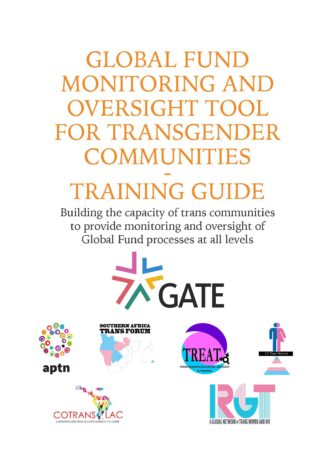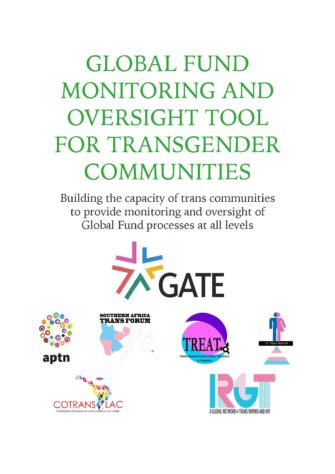Globally, there are major concerns that the response to HIV, TB and Malaria are still not reaching the populations that need it the most. In July 2018, UNAIDS launched its report Miles to Go – Closing the gaps, Breaking Barriers and Righting Justices. The report indicates that global new HIV infections have declined by 18% in the past seven years; the decline is not quick enough to reach the target of fewer than 500,000 new infections by 2020. The report warns that the pace of progress is not matching global ambition and shows that key populations, including transgender people and their partners, are the most affected by HIV but are still being left out of HIV programs.
Human rights violations, stigma and discrimination and laws that criminalize key populations continue to pose barriers to access to essential services. Thus, there is a call for more investments in reaching these key populations (KP), but there is also a call for more efficacy and accountability in the management of grants and programs to ensure that funds allocated for these populations are having the impact needed. This means more meaningful involvement and engagement of key populations in Global Fund processes throughout the grant cycle. Due in part to the community activism of key affected populations, including transgender women, the Global Fund established processes for engaging local civil society and KP groups under its New Funding Model (NFM). However, the Global Network of Transgender Women and HIV also raised numerous concerns about policies that impede consistent, effective engagement across countries and world regions in its “Most Impacted, Least Served – Ensuring meaningful engagement of transgender people in Global Fund Processes” report.
Over the past years, there have also been concerns regarding the decrease of Global Fund support for middle-income countries and the sustainability of those programs, especially key populations such as the transgender community. As expectation is placed on countries to sustain gains made over the past years, there is also concern that programs for key populations such as sex workers, transgender people, and men who have sex with men, among others, will not be prioritized if appropriate measures are not put into place during the transition process. For this reason, KPs, such as the transgender community, should play an integral role in the transition and sustainability planning process.
This tool and accompanying training guide, which are a compilation and adaptation of various resources available to civil society and developed by key agencies providing support to communities and civil society organizations, aim to build the monitoring and oversight capacity of the transgender communities engaged in Global Fund processes. These documents have been developed in partnership with local, regional, and global trans organizations and MC Consultancy with the leadership of GATE as part of its CRG Strategic Initiative grant.







